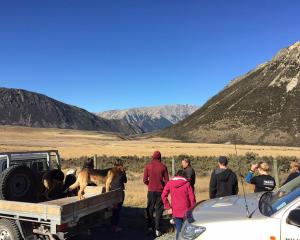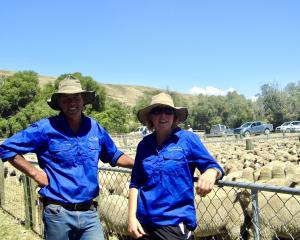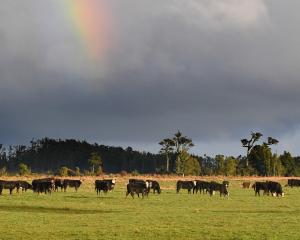
African swine fever - a severe viral disease in pigs - was now widespread across China and had the potential to substantially shift Asian meat trade, impacting importers and exporters, the bank's latest global beef quarterly report said.
Following the outbreak of the disease in August last year, the Chinese Government undertook measures to combat its spread, including the strengthening of border controls.
Action at the border was suspected to have led to a recent dramatic fall in unofficial meat trade, Mr Holgate said.
Increased border enforcement had also affected pricing across all Chinese meat products. Despite a 50% increase in beef imports and a 1.5% increase in domestic beef production in 2018, beef prices in mainland China had been rising.
In the fourth quarter of last year, China overtook the United States as New Zealand's single largest export market for beef products.
"Given New Zealand's favourable market access arrangements with China, and well-established formal trading relationships, we are very well positioned to meet additional demand from China for beef imports over the coming months," Mr Holgate said.
Despite pork consumption dropping, the bank estimated that production drops would be deeper, leaving a supply gap of some one million to two million tonnes for 2019, the report said.
That would be partially filled by other meats, including poultry, beef, sheepmeat and seafood.
Due to the size of the pork market in China, additional imports and meat substitution could not make up for the decline in pork production and all meat prices were expected to rise in the second quarter of 2019.
In addition to African swine fever, the report said the recent USDA (United States Department of Agriculture) decision on lean fine textured beef, Brexit negotiations and floods in Australia were other important developments which would impact global beef markets over the course of 2019 and beyond.
About 13million hectares of northern Australia cattle country was affected by floods early last month.
Large numbers of stock were killed and while it would be some time before the actual numbers affected could be determined, it was estimated the area contained about one million head of cattle.
A shortage of supply, combined with improving US beef prices and strong Asian demand, had led to a modest improvement in New Zealand farm-gate beef returns since the start of 2019, Mr Holgate said.
Some softening was expected over the coming quarter as domestic slaughter rates picked up, he said.
Dry conditions over the last month had started to limit feed availability in some parts of the country and farmers were likely to offload more cattle.
Dairy farmers were also expected to start to cull non-productive cows and that would further increase the supply of cattle to processors.
Westpac's latest Agri Update said US imported beef prices had lifted noticeably in recent weeks, with reports of an increase in US import demand, following reduced US availability. That improvement was expected to be temporary.













